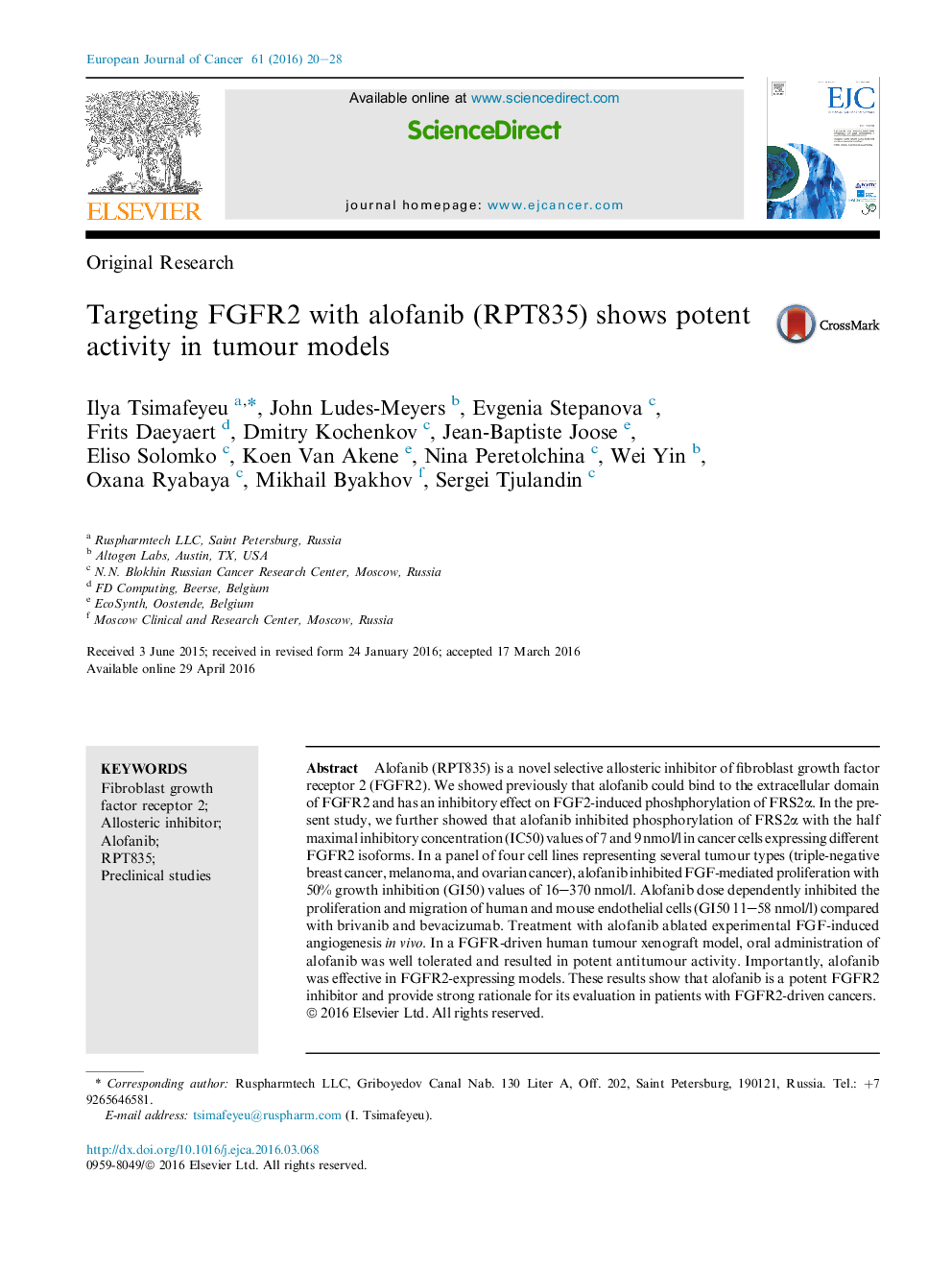| Article ID | Journal | Published Year | Pages | File Type |
|---|---|---|---|---|
| 8441155 | European Journal of Cancer | 2016 | 9 Pages |
Abstract
Alofanib (RPT835) is a novel selective allosteric inhibitor of fibroblast growth factor receptor 2 (FGFR2). We showed previously that alofanib could bind to the extracellular domain of FGFR2 and has an inhibitory effect on FGF2-induced phoshphorylation of FRS2α. In the present study, we further showed that alofanib inhibited phosphorylation of FRS2α with the half maximal inhibitory concentration (IC50) values of 7 and 9 nmol/l in cancer cells expressing different FGFR2 isoforms. In a panel of four cell lines representing several tumour types (triple-negative breast cancer, melanoma, and ovarian cancer), alofanib inhibited FGF-mediated proliferation with 50% growth inhibition (GI50) values of 16-370 nmol/l. Alofanib dose dependently inhibited the proliferation and migration of human and mouse endothelial cells (GI50 11-58 nmol/l) compared with brivanib and bevacizumab. Treatment with alofanib ablated experimental FGF-induced angiogenesis in vivo. In a FGFR-driven human tumour xenograft model, oral administration of alofanib was well tolerated and resulted in potent antitumour activity. Importantly, alofanib was effective in FGFR2-expressing models. These results show that alofanib is a potent FGFR2 inhibitor and provide strong rationale for its evaluation in patients with FGFR2-driven cancers.
Related Topics
Life Sciences
Biochemistry, Genetics and Molecular Biology
Cancer Research
Authors
Ilya Tsimafeyeu, John Ludes-Meyers, Evgenia Stepanova, Frits Daeyaert, Dmitry Khochenkov, Jean-Baptiste Joose, Eliso Solomko, Koen Van Akene, Nina Peretolchina, Wei Yin, Oxana Ryabaya, Mikhail Byakhov, Sergei Tjulandin,
